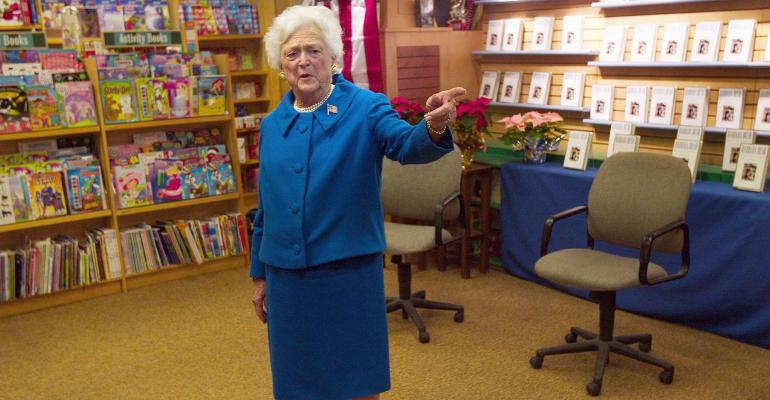By Caroline Feeney
Just as she carried herself while she was alive, First Lady, cherished matriarch and education advocate Barbara Bush left this earth in dignity, surrounded by family in the comfort of her home.
The circumstances around the final days of her life were made possible by her careful end-of-life planning, specifically an advanced healthcare directive clearly outlining her wishes regarding palliative care.
“Most of all I think that, for Barbara Bush, she really wanted to feel at the end of her life loved and cared for, and she was able to remain in her own home, and I think that for many individuals as they become older this thought of having to go someplace else can [make them feel] incredibly trepidatious,” said estate planning expert Robin Boren-Coleman Sexton, attorney at law at Sexton Estate Planning in Irvine, Calif., in a phone interview.
According to research by the University of Pennsylvania, only 29.3 percent of Americans have a healthcare directive specifying their end-of-life-care wishes. Moreover, a survey by Caring.com indicates less than half—42 percent—of adults in the U.S. have prepared estate planning documents such as a will or living trust.
Due to her political role and stature, Barbara Bush’s healthcare directive was no doubt a matter of State showing just one piece of a thorough estate plan.
“I’m sure the rest of the estate was incredibly thorough,” said Boren-Coleman Sexton. Because Barbara Bush’s husband, former President George H.W. Bush, is still living, it’s unlikely that the public will become privy to the details at this time.
“That’s the most fantastic thing about a revocable living trust, is that it is a very private document,” said Boren-Coleman Sexton.
Yet, an artfully crafted estate plan that reflects your legacy is not just for the wealthy and famous but anyone who could foreseeably go through the probate process, according to Boren-Coleman Sexton.
“Pretty much everyone needs a living trust to avoid probate after death,” echoed Sacramento-based probate attorney John Palley, who has been awarded Martindale-Hubbell’s prestigious “AV” peer review rating, who up until last year did estate planning, in a phone interview.
“Every state’s different, but in California, for example, even a very modest family—if they own real estate—their family will save significantly after death if they had a living trust in place.”
Here are 10 takeaways for clients based on what we know about vigilant end-of-life plans, such as the one created by the likes of Barbara Bush.
Caroline Feeney is Managing Editor of HomeLight.





